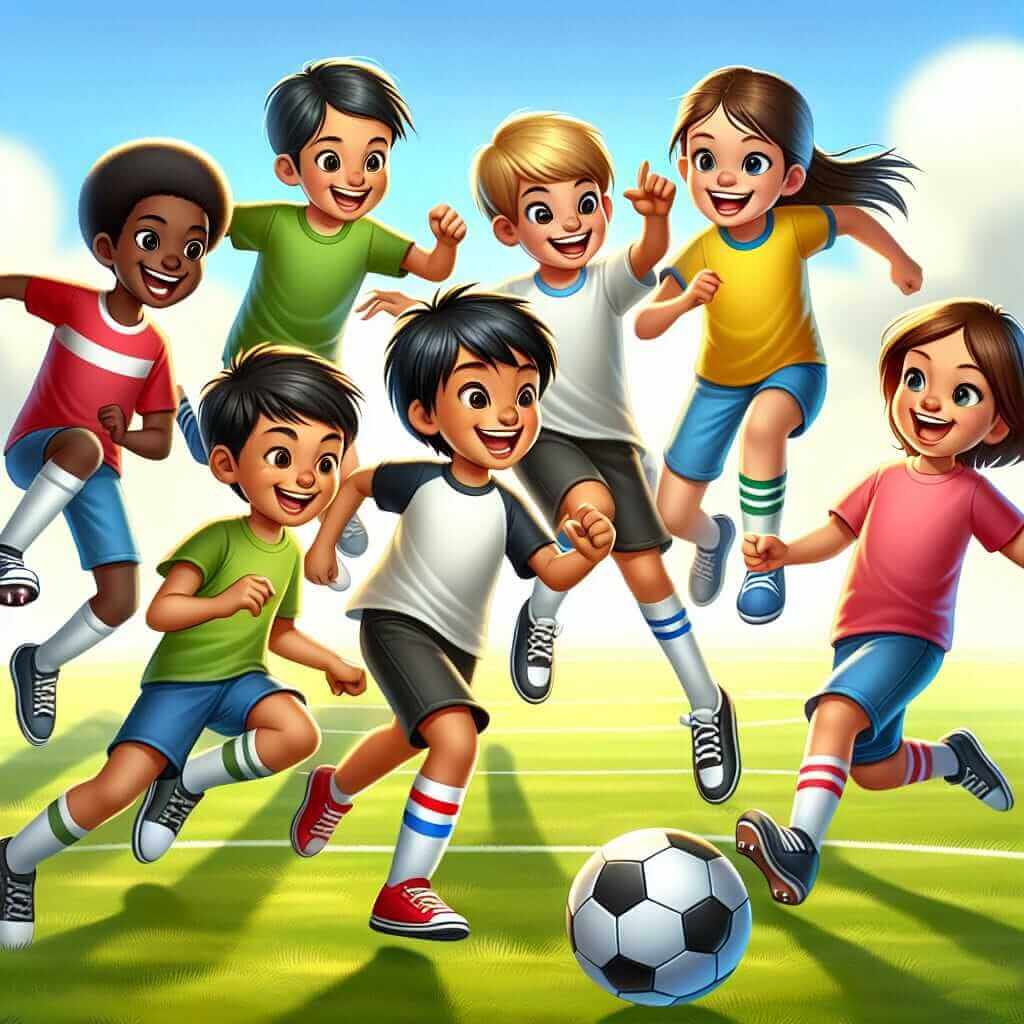The concept of sports fostering social cohesion is a recurring theme in IELTS Writing Task 2. This theme explores how athletic activities can bridge social divides and strengthen community bonds. Understanding the nuances of this topic and effectively articulating your arguments is crucial for achieving a high band score.
Below are some IELTS Writing Task 2 questions you might encounter concerning the role of sports in promoting social cohesion:
- Some people believe that sports play a crucial role in promoting social cohesion, while others argue that they can exacerbate existing divisions. Discuss both views and give your own opinion.
- To what extent do you agree that international sporting events like the Olympics help to unite people from different cultures?
- In today’s world, many people are increasingly isolated from their communities. Can sports help to address this issue?
Sample Essay: Sports and Social Cohesion
Let’s delve into a sample essay addressing the first question:
Question
Some people believe that sports play a crucial role in promoting social cohesion, while others argue that they can exacerbate existing divisions. Discuss both views and give your own opinion.
Analysis
This question requires a balanced discussion, presenting arguments for and against the role of sports in promoting social cohesion. You should aim for a clear structure, presenting both sides impartially before offering your own well-supported opinion.
Essay
Sports have long been lauded for their potential to unite people from diverse backgrounds, fostering a sense of shared identity and camaraderie. However, skepticism remains regarding their efficacy in bridging social divides, with some arguing that they can perpetuate existing inequalities. This essay will delve into both perspectives before presenting my own viewpoint.
Advocates of sports’ unifying power often highlight the shared experience of supporting a team or athlete. Regardless of social standing, ethnicity, or religious beliefs, fans unite under a common banner, fostering a sense of belonging and reducing prejudice. Moreover, participation in team sports necessitates collaboration and communication, breaking down social barriers and encouraging mutual respect. This is particularly evident in youth sports, where children from different backgrounds learn to work together towards a common goal, fostering empathy and understanding.

Conversely, critics argue that sports can reinforce existing social divisions. They point to instances where differences in access to sporting facilities and opportunities perpetuate inequalities. For example, children from disadvantaged backgrounds may lack the resources to participate in certain sports, limiting their chances of developing skills and forming social connections. Furthermore, the hyper-competitive nature of sports can fuel animosity and rivalry, not just between athletes but also among fans, exacerbating existing tensions. This is particularly concerning in cases where sports become entangled with nationalistic sentiments, leading to hostility and conflict.
In my view, while acknowledging the potential downsides, the positive impact of sports on social cohesion cannot be disregarded. While disparities in access and the potential for rivalry exist, the shared experience of participating in and watching sports fosters camaraderie, breaks down prejudices, and cultivates valuable life skills such as teamwork and respect. By promoting inclusivity and addressing inequalities in access, we can harness the power of sports to build stronger, more cohesive communities.
(Word count: 301)
Notes
- Structure: The essay follows a clear structure, presenting both sides of the argument before offering a reasoned opinion.
- Vocabulary: The essay utilizes a range of vocabulary related to social cohesion, such as “camaraderie,” “prejudice,” “inequalities,” and “rivalry.”
- Grammar: The essay demonstrates control over complex grammatical structures, including conditionals and relative clauses.
Vocabulary
- Cohesion (noun) /koʊˈhiːʒən/: The state of being united or sticking together.
- Exacerbate (verb) /ɪɡˈzæsərbeɪt/: To make a bad situation worse.
- Camaraderie (noun) /ˌkæməˈrɑːdəri/: A feeling of friendship and trust among people who work or spend time together.
- Prejudice (noun) /ˈpredʒ.ə.dɪs/: A preconceived opinion that is not based on reason or experience.
- Disparity (noun) /dɪˈspær.ə.ti/: A great or unfair difference between two or more things or people.
- Hyper-competitive (adjective) /ˈhaɪ.pər.kəmˈpet̬.ə.t̬ɪv/: Extremely competitive.
- Animosity (noun) /ˌæn.əˈmɑː.sə.t̬i/: Strong hostility.
- Nationalistic (adjective) /ˌnæʃ.ən.əlˈɪs.tɪk/: Having or expressing an extreme love for one’s country.
- Inclusivity (noun) /ɪn.kluːˈsɪv.ə.ti/: The practice or policy of including people who might otherwise be excluded or marginalized.
Conclusion
The relationship between sports and social cohesion is complex and multifaceted. Effectively articulating your understanding of this relationship requires careful consideration of both the unifying and divisive aspects of sports. By employing a balanced approach, utilizing relevant vocabulary, and maintaining a clear and coherent structure, you can confidently tackle any IELTS Writing Task 2 question on this topic. Remember to practice writing essays on similar themes to improve your skills and boost your confidence.